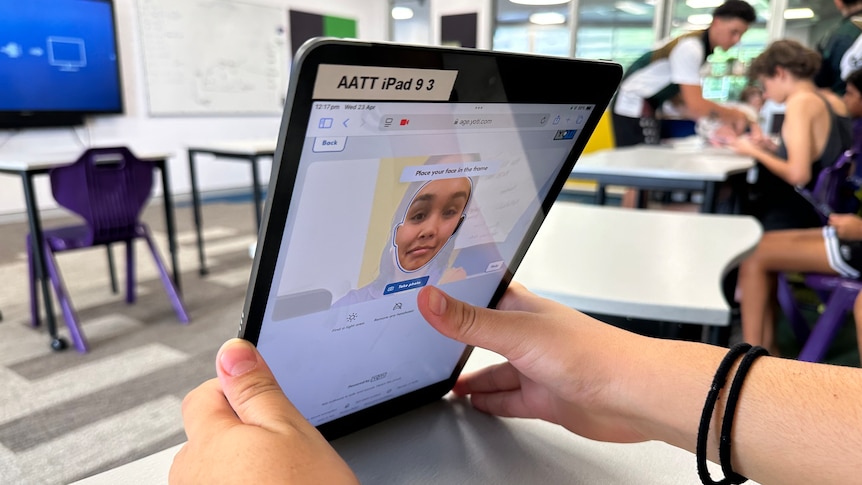Rachel Mealey: It began with a crackdown on minimum required ages for social media platforms, but soon internet search engines such as Google will also be subject to age assurance rules in Australia. It means companies will have to check the age of users when logging in to search engines, in a bid to prevent children from seeing harmful content like pornography or violence. For more, I spoke with the ABC’s National Technology Reporter, Angela Lavoipierre. Ange, how will these age assurance rules work, and will they keep kids any safer?
Angela Lavoipierre: From the 27th of December this year, search engines will have to use some form of age assurance technology on users when they sign in, or face fines of almost $50 million per breach. As for which companies are covered by the rules, the key players are of course Google, which has a share of more than 90% in Australia, and its rival, Microsoft. And the changes mean that logged in users who are demonstrated to be under the age of 18 will have their search results filtered for things like pornography, high impact violence, material promoting eating disorders. There’s a long list of harmful content that will be covered there. Now logged out users will instead experience a default safety setting. So at a minimum that will blur out violent and pornographic images in search results, but it will likely allow them to avoid the most stringent filters such as omitting links completely. We don’t yet know what methods search engines are going to use to check our ages, but they’ll have a bit of a menu to choose from. Photo ID, face scanning, credit card checks, they’re some of the options. They might even just be able to guess your age based on the data they already have. And you can think about how much data, for example, Google already has on its users. Now as for whether or not that’s going to keep young people safer, we do know that VPNs will allow people to get around this. And there are questions about, of course, how accurate and effective age assurance technology is in the first place. And then there’s the fact that you can always choose not to log in.
Rachel Mealey: These rules were formalised quietly last month. So why haven’t we heard more about them?
Angela Lavoipierre: Yeah, so this may come as a surprise to people, but part of the reason we’re not getting anywhere near the same amount of oxygen with this, say, as the social media ban, may be because the changes are taking place away from the halls of parliament in this relatively dry world of regulation. They’re part of a new industry code, which is one of nine that will ultimately be registered by the eSafety Commissioner covering the entirety of the internet ecosystem. It’s also, of course, not a ban, but it is the same or similar age checking technology which will animate that social media ban. And it does have the same privacy or potential privacy impacts in that people will be asked for information because, well, that’s how age checks work. The eSafety Commissioner, Julie Inman Grant, did briefly mention the changes for search engines specifically with age assurance at her recent National Press Club address.
Julie Inman Grant: Through these codes, companies agree to apply safety measures up and down the technology stack, including age assurance protections. These provisions will serve as a bulwark and operate in lockstep with the new social media age limits.
Angela Lavoipierre: So there is a mention there, but we haven’t seen the government communicate widely about this specific change. And I think it’s fair to say that it has gone mostly unnoticed. So digital rights activists are really asking whether we have the social licence in place for what does look like a world first change.
Rachel Mealey: So first social media, now search engines. Where could we see age assurance land next?
Angela Lavoipierre: Yeah, so those are just the first parts of the internet to introduce age checks for Australians, but they’re quite unlikely to be the last. App stores, messaging services, porn sites, gambling companies, they’re all on this long list of players that are preparing for similar rules to come into effect. I’ve looked at draft versions of the remaining six industry codes which cover those services and many, many more, and they do contain obligations for age checking. They haven’t been approved by the eSafety Commissioner yet, but in the past she’s only rejected proposed industry codes because they weren’t tough enough. And that means that these proposed rules around age assurance are very likely to make the final cut.
Rachel Mealey: Ange Lavoipierre.
